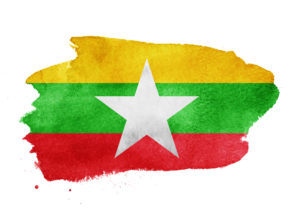
U.S. Sen. Todd Young (R-IN) this week led a bipartisan contingent in requesting U.S. sanctions against the top Burmese military leaders who committed “horrific atrocities” against the Rohingya people, an ethnic minority in Southeast Asia.
The largely Muslim Rohingya people — considered by the United Nations to be the world’s most persecuted minority — suffered myriad human rights abuses in 2017 during security operations led by military forces in the former Burma, which officially is known as Myanmar, according to Sen. Young and three Democratic senators.
“The United Nations Fact Finding Mission, the U.S. government, and several non-governmental organizations have documented the killing of an estimated 6,000 to 43,000 Rohingya, and the displacement of 727,000 to neighboring Bangladesh, as well as cases of summary executions, mass rapes, and burnings of villages — all directed primarily by military units deployed to Rakhine State,” wrote Sen. Young and his colleagues in a March 19 letter sent to U.S. Secretary of State Mike Pompeo and U.S. Treasury Secretary Steve Mnuchin.
Lacking any credible progress by the United States in resolving this situation, the four lawmakers asked the secretaries to clarify the Trump administration’s policy for sanctioning the perpetrators of these crimes against the Rohingya people, according to their letter, and they requested targeted sanctions against more of the senior-most Burmese military leaders.
“We believe that it is important for the United States to signal its intolerance for behavior that contravenes fundamental human rights,” Sen. Young and the Democratic senators wrote.
Thus far, the Trump administration has sanctioned five Burmese military officers and two units, “a welcome development,” the lawmakers wrote, albeit insufficient.
Sen. Young and his cohorts now urge “strong sanctions against four senior Burmese military officials identified as complicit in orchestrating the human rights violations and who have not been subject to sanctions.” They are Tatmadaw Commander-in-Chief and Senior-General Min Aung Hlaing; Deputy Commander-in-Chief and Vice Senior-General Soe Win; Brigadier-General Aung Aung; and Brigadier-General Than Oo.
“The Trump administration has taken no action against these senior officials even though sanctions designations would send a strong message that the United States supports accountability for those perpetrating well-documented human rights abuses against the Rohingya and other ethnic minorities,” wrote the senators.
Min Aung Hlaing’s designation under the Global Magnitsky program, in particular, would carry “special significance,” according to Sen. Young and the other lawmakers because he heads up the Burmese armed forces.
“The body of evidence establishing Min Aung Hlaing’s complicity in the human rights abuses against the Rohingya plainly warrants designations under both the Global Magnitsky Act and President Trump’s sanctions order,” according to their letter.
Sen. Young and his colleagues also asked the secretaries to answer numerous questions, including whether the administration has considered sanctioning these individuals and if not, why not; as well as whether the administration thinks there’s value in such sanctions designations considering that these Burmese criminals lack assets in America and rarely travel to the country, among several others.
The lawmakers requested a written response to their questions by April 5.



